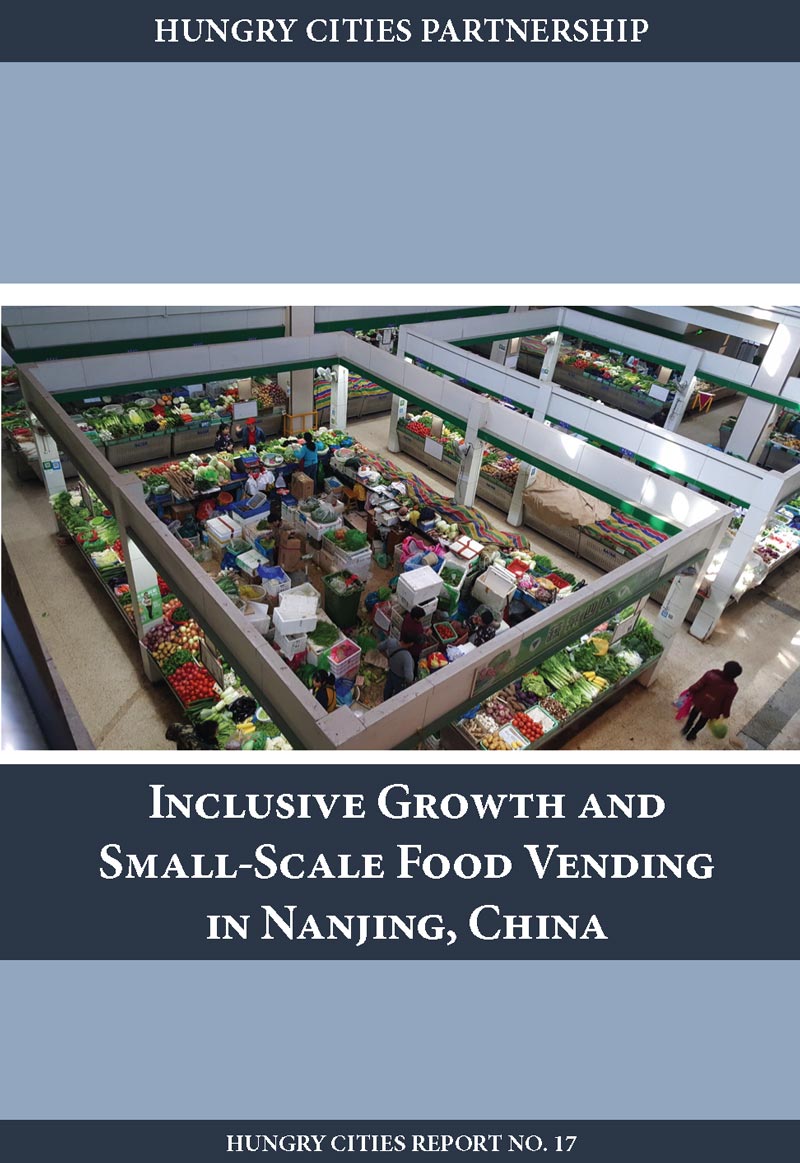In cities of the Global South, the informal food economy comprises a dense network of markets, suppliers, transporters, mobile traders, hawkers, retailers, and street food vendors making food more accessible and affordable to consumers. The informal food sector represents an “urban laboratory” for examining how inclusive growth strategies can have a positive impact in encouraging entrepreneurship, alleviating poverty, and mitigating food insecurity. This report summarizes the results of a survey in Nanjing, China, of small food vendors including wet market vendors, street vendors, and small food shops. It describes the demographic and socioeconomic features of these retailers, their enterprise structure, business strategies, challenges, employee characteristics, food hazard risks, and aspirations. Among the survey’s key findings are that most vendors started operating after 2000, which is related to the broader restructuring of state-owned enterprises, the rise of the private sector, the growth of wet markets, and rapid rural-to-urban migration; most vendors work full time in their food business; and economic survival and providing income for the family are the most important motivations for entering the sector. For the informal food sector to grow and thrive, an enabling policy environment is essential. The survey results in this report add significantly to the evidence base on which supportive and workable policies can be constructed.

